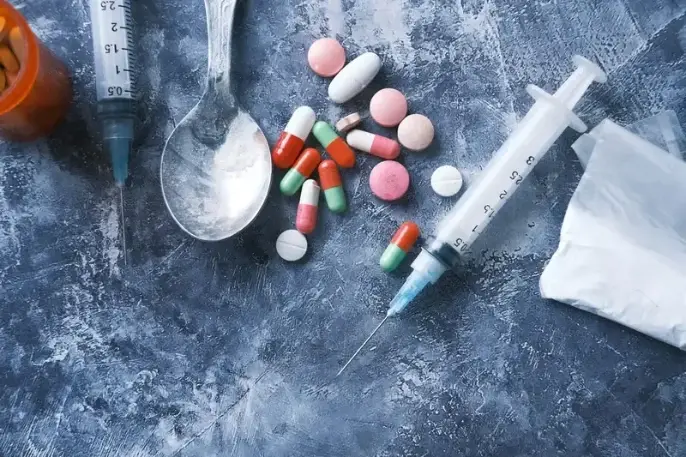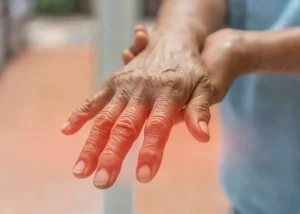
Working out does not directly flush out alcohol from your body per se, but it helps keep you healthy, active and invigorated. You will breathe easier and sweat profusely, releasing toxins naturally. This will help make the flushing out of urine and, essentially, the alcohol in your system. Heavy drinking and alcohol addiction tend to change alcohol metabolism and give the appearance that a heavy drinker has a higher tolerance for handling alcohol. Eating before drinking affects how quickly you’ll get drunk and whether you will feel sick after drinking. However, if you continue to consume alcohol, the food you ate beforehand eventually becomes a moot point.
- Your experience of the condition’s toxic effect differs depending on whether you are in the acute or chronic phase.
- A further 80 percent approximately is absorbed by the small intestines.
- Certain medications can affect how your body metabolizes alcohol.
- As alcohol leaves the blood, it also leaves the milk, making it unnecessary to “pump and dump” breast milk after drinking alcohol.
How Long Does it Take to Sober Up?

In-patient programs provide round-the-clock care and support from the medical team. Therapy and counseling sessions can help you understand the underlying causes of your addiction. In addition to flushing out alcohol, water increases your hydration levels. This is important since alcohol drinks often leave you dehydrated. Alcohol-induced dehydration can cause unpleasant side effects such as drowsiness and headache.
Can you pass an alcohol urine test in 24 hours?
Blood alcohol concentration (BAC) refers to the amount of alcohol in your blood to the amount of water in your blood. However, this can vary somewhat based on the type of alcohol you drink, your physical health, or your genetic predisposition. As a community based treatment center, it’s important to us that we share helpful resources and expert content created for those who are seeking treatment or already in recovery. Metabolizing alcohol is a complex process and most ranges are “averages” rather than how long it will specifically take you to metabolize that alcohol.
Steps to Flush Alcohol From Urine
It will take longer for wine to leave your body than beer, even if you consumed the same amount. Tell trusted family and friends about your plan to quit or cut back on alcohol. When those around you are in the know, it can help them know not to offer you drinks.
Hot Flush After Alcohol Consumption – What Does It Mean?
That means it can take three to seven hours for your body to metabolise and eliminate one to four drinks, depending on several factors. Once alcohol enters your bloodstream after you drink, your body starts to break it down and metabolise a portion every hour. Your body flushes the alcohol out of your system steadily but slowly. As a result, if you drink a lot or very quickly, how to quickly get alcohol out of urine some unmetabolised alcohol will linger in your blood, leading to intoxication. How to Flush Alcohol From Urine – Before we dive into how to flush alcohol from your urine, it’s important to understand how alcohol is processed by the body. When you consume alcohol, your liver breaks it down into different compounds, including acetaldehyde, which is toxic to the body.
How long does alcohol stay on your breath?
- The alcohol will then enter your blood, and the drug metabolizes.
- The form found in most alcoholic beverages is known as ethyl alcohol, which is produced during the fermentation process.
- A BAC of .08% is equivalent to four drinks consumed by a 160-pound person in one hour.
- Remember that 20% of the alcohol content in one drink is absorbed into the bloodstream from your stomach.
Aim to drink at least eight glasses of water per day, and even more if you have been drinking alcohol. Alcohol causes dehydration, which is why you get a hangover the next day after a night of drinking. Drinking plenty of water will reduce dehydration and get water back in your system. An electrolyte drink will help your body hold the fluids and rehydrate faster. Your liver is responsible for breaking down the majority of alcohol in your body. As a matter of fact, 90% of the metabolism of alcohol into water and carbon dioxide is performed by the liver.
How Does Your Body Get Rid of Alcohol?

Alcohol starts to absorb in your stomach and small intestine very quickly after consumption. From there, it travels into your bloodstream, which then transports it across your entire body. When transported to the brain, alcohol can impair messages being made there, affecting your emotions, movement and senses.
So why do alcohol’s effects hit people so differently?

If you’re struggling to curb alcohol use or to quit, even with a court order, it’s a good sign that you should ask for help. Traces of alcohol can generally be detected in the body if it’s been consumed within a day. Alcohol byproducts like ethyl glucuronide (EtG) will be present in urine for up to 3 days after a person’s last drink. You can also help your body metabolize alcohol by avoiding highly processed foods and drinks like chips, white bread, and soda. This added stress can make it difficult for your liver to metabolize alcohol in a timely manner. A PEth test may be able to detect alcohol consumption within the previous 1 to 3 weeks.
- But it can linger on your breath, in your saliva, or pee anywhere from 12 to 24 hours.
- Some loved ones will offer to take a breathalyzer and then drink afterwards, or they will argue that they aren’t drunk.
- The liver produces enzymes that break down the alcohol molecules.
- Alcohol byproducts like ethyl glucuronide (EtG) will be present in urine for up to 3 days after a person’s last drink.
- This method tests for ethyl glucuronide, a breakdown product of ethanol – which is the alcohol you find in alcoholic beverages.
- However, if you continue to consume alcohol, the food you ate beforehand eventually becomes a moot point.
- What equates to 1 drink depends on the size and type of alcoholic drink you have.
